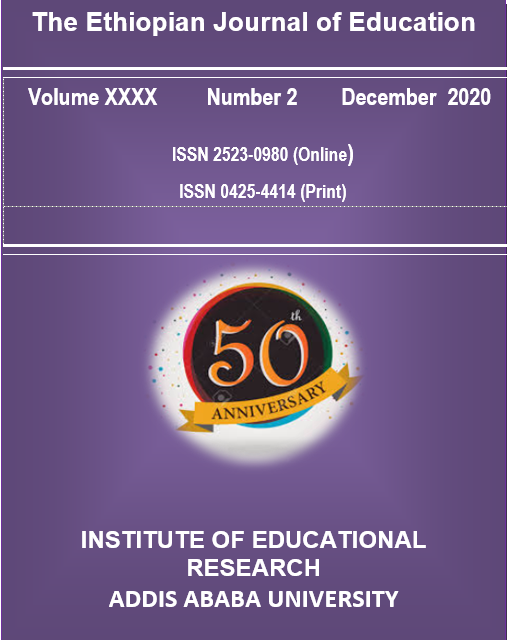Factors Generating Conflict among Government Preparatory Secondary School Students in Amhara Region, Ethiopia
Abstract
School conflict is a social phenomenon noticeable through the interaction of people; hence, its occurrence is unavoidable. If a conflict is not well managed in schools, it could hinder the teaching and learning process and would have negative impacts on a healthy school environment. The purpose of the study was to examine the factors generating conflicts among the selected preparatory secondary schools in the Amhara Region. A mixed methods research design was employed for the study. The instruments used for data collection were questionnaire survey, key informants’ interview, and direct observation. The binary logistic regression model was employed to identify determinant factors leading students to join in conflicts. The study underscored that an unhealthy school environment, barriers in communication, the poor academic performance of teachers, authoritarian teaching styles, and a lack of family follow-up were factors instigating students to engage in conflicts. The study recommended that school principals and teachers should motivate students to take part in the decision-making process and deliver continuous training to manage conflicts for a healthy school environment.
